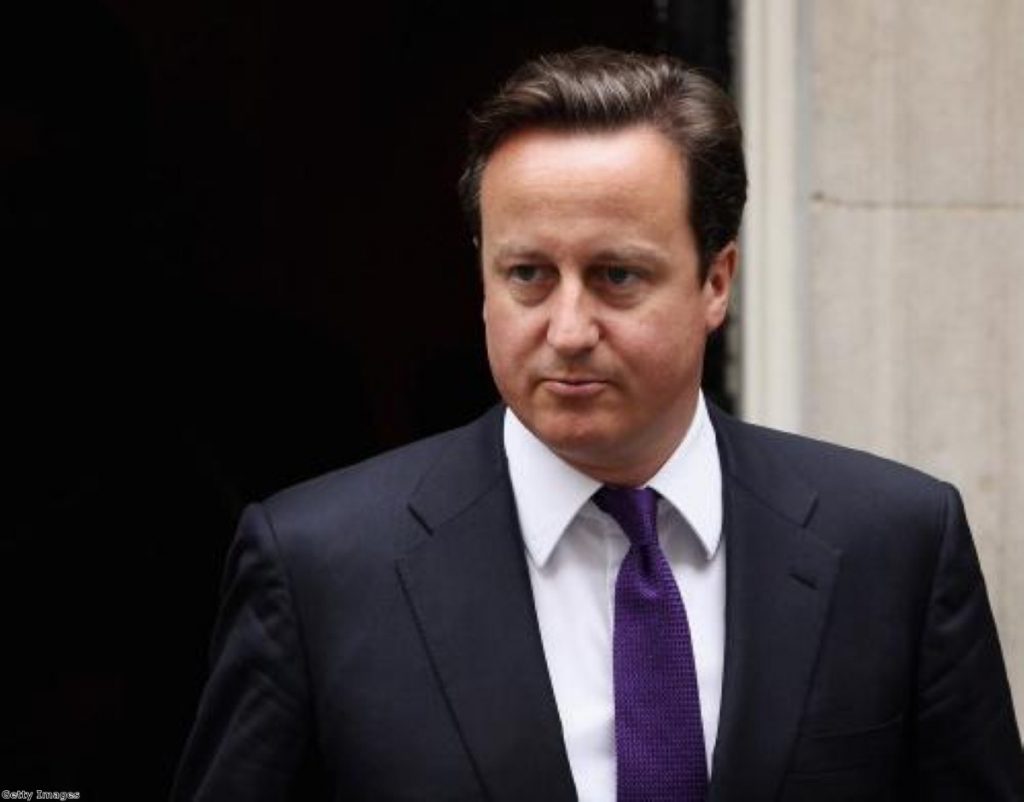No deal: Leveson heads for Commons showdown
Cross-party talks on a solution to the Leveson impasse have collapsed, leaving party leaders facing a showdown in the Commons on Monday.
David Cameron told reporters at a hastily-convened press conference in Downing Street he would not allow other parties to "hijack" legislation in the Commons and attacked Ed Miliband and Nick Clegg for 'grandstanding' on the issue of press regulation.
The prime minister is refusing to accept that primary legislation to establish a regulatory body for the press via royal charter is necessary.
He is publishing his proposals for a royal charter in a move which decisively ends behind-closed-doors talks. Yesterday Cameron had agreed to meet with Miliband and Clegg again on Monday, but dramatically informed them of his decision to end all further discussion in a conference call earlier.


Conservative amendments to the crime and courts bill will seek to implement the plan in full. Cameron challenged other parties to table their own amendments to resolve the issue.
"They can back my amendments and support this royal charter to secure a workable system… or they can grandstand and end up with a system that I believe will not work," he said in No 10.
"What I can't do with effectively a hung parliament is just stand back and say 'we'll negotiate for ever'… we need to bring this to a head, make a decision and in my view put in place something that will work and work quickly."
Cameron's amendments would deliver upfront apologies, million-pound fines, a standards code, an arbitration code and speedy complaint handling mechanism, he explained.
"I believe there are real dangers in passing detailed legislation about press regulation," the PM added.
"It crosses the rubicon in terms of endangering press freedoms. That is why we propose the royal charter approach. It is a proven way of establishing a public body without the need for legislation, as we've seen with our universities and the BBC."
Labour and the Lib Dems said they were disappointed by the prime minister's decision to walk away from talks, but are expected to stand by their positions when the issue comes to a head next week.
"I don't believe David Cameron's solution does serve the victims because ministers could change his proposals without reference to parliament, and it's not properly independent of the press," Miliband said.
"We are determined to carry on working to get a solution that will deliver for the victims, and that will be done obviously through work in parliament."
Miliband and Clegg believe a royal charter can only be safeguarded from potential meddling by future governments if its independence is guaranteed by statute.
"I was disappointed and a bit surprised that David Cameron has decided to walk away from cross-party talks, especially when they were making real progress, even as late as yesterday evening," Clegg complained, in comments paving the way for him to vote against his coalition partner next week.
Although Clegg did not go so far as to confirm he would be prepared to whip his party against the Tories, the threat was clearly made.
"There are several days to go before votes are held and in those days I'll be working flat out speaking to other politicians from other parties," he said.
"I don't agree with David Cameron's approach because I don't think it goes far enough to deliver on the central recommendations of the Leveson report… I will be working with politicians, including Conservative politicians, from all parties in order to make sure we deliver the right solution."
Clegg and Miliband can expect a backlash of fury from the printed press, which is refusing to accept a system of regulation underpinned by legislation is necessary.
"The self-regulation must be voluntary," Cameron added.
"There's no point producing a system the press won't take part in. As prime minister, I wouldn't be fulfilling my duty if I came up with something that wouldn't work."
National newspapers were quick to suggest Miliband was walking into a 'beartrap' set by Cameron. But the PM's rhetoric – protecting the interests of newspaper editors – clashes with Miliband's focus on the victims of phone-hacking.
"We should carry on working to get a workable solution… that will deliver," Miliband added. Frankly, I don't think David Cameron is serving either the victims of press abuses or the interests of the country."
The prospect of a Commons fight in Monday's is mouth-watering, as the vote is likely to be extremely close.
Without the support of Liberal Democrats the Tories are the underdogs to win the division. But Miliband will lead a rainbow coalition on the issue which relies on support from minor parties, making the result of the clash deeply uncertain.
Can Cameron win a Leveson vote? The Commons arithmetic untangled

